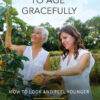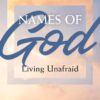Greetings from Sarah Sundin from California, where we’re rejoicing in the smidgen of rain we’ve received. Today I have the honor of interviewing multi-published novelist Donn Taylor, who has put his careers in the military and in academia to use in his stories! Donn, tell us about your book, Murder in Disguise. Official verdict: Suicide. But why would that vigorous department chairman kill himself? When visiting professor Preston Barclay asks questions, he receives threats. The more things don’t add up, the more the threats increase, leading Press and his colleague Mara Thorn increasingly into danger. Why did you write this…
Tag: Donn Taylor
This is our archive pageTips from the Pros: Donn Taylor
, by adminA warm hello from Marti Pieper, writing from beautiful (and equally warm) Mount Dora, Florida. In this month of Thanksgiving, many of us are taking time to count our blessings.One of the blessings in my writing life is my friendship via social media and email with author Donn Taylor. We’ve never met in person but have enjoyed mutual support and encouragement over the past few years. I’m both grateful and delighted to share my friend with our CAN readers today. Greetings, Donn! I’m glad to welcome you to your encore interview with CAN. Let’s get started. How many books do you have published?…
Making Poems Different III
, by adminHello, I’m Donn Taylor, back again after several months of alligators up to the ears. I’m still talking about ways to achieve the “higher voltage” that distinguishes poetry from most prose. We’re still looking at ways to make your poems different from many that editors will see. Most of the new poems I’m seeing are written in the poet’s own voice, with the poet as speaker (persona) of the poem and the poet’s self as the subject. It’s safe to assume that editors will see more of that kind of poem than any other. Previously we illustrated making your poem…
Making Poems Different I
, by adminHello, I’m Donn Taylor, here again to talk about poetry and ways to achieve the “higher voltage” that distinguishes poetry from most prose. In my last few posts, I spoke of several basic ways to organize a poem. Now we turn to several ways of making your poem different than many, perhaps most, that editors will see. The vast majority of new poems I’m seeing are written in the poet’s own voice, with the poet as the speaker (persona) of the poem and one or more aspects of the poet’s self as the subject. It’s safe to assume that editors…
Poetry Basics: Organizing the Poem III
, by adminHello. I'm Donn Taylor, here again to talk about poetry writing and ways to achieve the "higher voltage" that distinguishes poetry from most prose. We've talked about putting strong words in emphatic places, use of images, and a little bit about figurative language. On my last blog we began talking about ways to organize a poem. Those ways are infinite, of course, so we'll confine ourselves to some of the most common, and we'll deal only with lyric poetry (poetry that expresses the poet's thoughts or emotions). As before, I compare a short poem to a paragraph: it has a…
Poetry Basics: Organizing the Poem II
, by adminHello. I'm Donn Taylor, here again to talk about poetry writing and ways to achieve the "higher voltage" that distinguishes poetry from most prose. We've talked about putting strong words in emphatic places, use of images, and a little bit about figurative language. On my last blog we began talking about ways to organize a poem. Those ways are infinite, of course, so we'll confine ourselves to some of the most common, and we'll deal only with lyric poetry (poetry that expresses the poet's thoughts or emotions). As before, I compare a short poem to a paragraph: it has…
Basics in Poetry Writing: Figurative Language I
, by adminHello. I'm DonnTaylor, writing again about the basic elements of poetry writing. In previous blog sessions we've mentioned the late Lawrence Perrine's statement that poetry speaks "in higher voltage" with greater compression of meaning than most prose. We've also spoken of placing strong words in the emphatic positions of the poetic line, and we've discussed the necessity of using strong images. Now we move to one of the most important elements that achieve compression of meaning, often with striking effect: figurative language. In this session we'll look at personification, simile, and metaphor. We'll cover other figures later.
Basic of Poetry Writing II – Images
, by adminby Donn Taylor In my last poetry blog we talked about finding strong words and putting them in emphatic positions in the poetic line. The end of the line is most emphatic; the beginning, next-most emphatic. Now we go on to specific kinds of strong words. As Lawrence Perrine wrote, poetry speaks in "higher voltage" than prose. One essential means of achieving that higher voltage is the effective use of images—words or phrases that appeal to one of the five senses. Why important? Because everything we know about the world we live in comes to us through one…
Some Basics of Writing Poetry
, by adminHello. I'm Donn Taylor. Last month I encouraged aspiring poets to write good-quality poetry that can be understood by ordinary readers. This month we begin on basic elements that can make that poetry good. Ideally, poetry is more compact, more intense than prose. As the late Lawrence Perrine put it, poetry speaks in "higher voltage." William Baer says further that poetry emphasizes the line, the sound of words, and compression of meaning. All of these things are true, but accomplishing them is achieved only by attention to even the smallest elements. Oscar Wilde famously said he'd worked all…
Toward Poetry Revival
, by adminI have loved poetry since the age of seventeen when I discovered Byron, Keats, and Shelley. As I matured, I came to love deeper masters like Virgil, Spenser, Donne, Milton, and Tennyson, as well as Homer and Dante in translation. But something bad happened to poetry about a hundred years ago, so that many of today's readers are completely turned off toward poetry. It doesn't have to be that way. In my CAN blogs I will encourage a revival of good-quality poetry that can be enjoyed by ordinary readers, and I'll describe and illustrate techniques that can make it…
Recent Posts
Recent Posts
Archives
- July 2024
- June 2024
- May 2024
- April 2024
- March 2024
- February 2024
- January 2024
- December 2023
- November 2023
- October 2023
- September 2023
- August 2023
- July 2023
- June 2023
- May 2023
- April 2023
- March 2023
- February 2023
- January 2023
- December 2022
- November 2022
- October 2022
- September 2022
- August 2022
- July 2022
- June 2022
- May 2022
- March 2022
- February 2022
- January 2022
- December 2021
- November 2021
- October 2021
- September 2021
- August 2021
- July 2021
- June 2021
- May 2021
- April 2021
- March 2021
- February 2021
- January 2021
- December 2020
- November 2020
- October 2020
- September 2020
- August 2020
- July 2020
- June 2020
- May 2020
- April 2020
- March 2020
- February 2020
- January 2020
- December 2019
- November 2019
- October 2019
- September 2019
- August 2019
- July 2019
- June 2019
- May 2019
- April 2019
- March 2019
- February 2019
- January 2019
- December 2018
- November 2018
- October 2018
- September 2018
- August 2018
- July 2018
- June 2018
- May 2018
- April 2018
- March 2018
- February 2018
- January 2018
- December 2017
- November 2017
- October 2017
- September 2017
- August 2017
- July 2017
- June 2017
- May 2017
- April 2017
- March 2017
- February 2017
- January 2017
- December 2016
- November 2016
- October 2016
- September 2016
- August 2016
- July 2016
- June 2016
- May 2016
- April 2016
- March 2016
- February 2016
- January 2016
- December 2015
- November 2015
- October 2015
- September 2015
- August 2015
- July 2015
- June 2015
- May 2015
- April 2015
- March 2015
- February 2015
- January 2015
- December 2014
- November 2014
- October 2014
- September 2014
- August 2014
- July 2014
- June 2014
- May 2014
- April 2014
- March 2014
- February 2014
- January 2014
- December 2013
- November 2013
- October 2013
- September 2013
- August 2013
- July 2013
- June 2013
- May 2013
- April 2013
- March 2013
- February 2013
- January 2013
- December 2012
- November 2012
- October 2012
- September 2012
- August 2012
- July 2012
- June 2012
- May 2012
- April 2012
- March 2012
- February 2012
- January 2012
- December 2011
- November 2011
- October 2011
- September 2011
- August 2011
- July 2011
- June 2011
- May 2011
- April 2011
- March 2011
- February 2011
- January 2011
- December 2010
- November 2010
- October 2010
- September 2010
- August 2010
- July 2010
- June 2010
- May 2010
- April 2010
- March 2010
- February 2010
- January 2010
- December 2009
- November 2009
- October 2009
- September 2009
- August 2009


